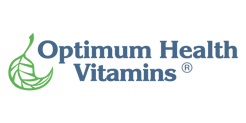 Leaky Gut Syndrome is when large quantities of undigested or partially digested food particles, as well as fragmental microorganisms, pollute the circulatory and lymphatic systems around the GI tract. This is due to small tears or an increase in the permeability of the intestinal wall. Normally, the lining of the small intestine is selectively penetrable, and only digested food particles pass through it to be utilized in the blood stream and lymph cells. Leaky Gut Syndrome occurs commonly because the wall of our intestines is only one cell layer thick. These cells are renewed every three days and if your cellular turnover and gut integrity is not up to par, this can spell disaster, leading to gaps in the barriers. This compromises the ability of your body to keep bad things out and good things in.
Leaky Gut Syndrome is when large quantities of undigested or partially digested food particles, as well as fragmental microorganisms, pollute the circulatory and lymphatic systems around the GI tract. This is due to small tears or an increase in the permeability of the intestinal wall. Normally, the lining of the small intestine is selectively penetrable, and only digested food particles pass through it to be utilized in the blood stream and lymph cells. Leaky Gut Syndrome occurs commonly because the wall of our intestines is only one cell layer thick. These cells are renewed every three days and if your cellular turnover and gut integrity is not up to par, this can spell disaster, leading to gaps in the barriers. This compromises the ability of your body to keep bad things out and good things in.
What causes it?
• Nutritional Deficiencies
• Stress or Trauma
• Drug Use (especially antibiotics, NSAIDs and alcohol)
• Parasites and Candida
• Food Allergies/Intolerances
It is important to note the “feed forward” nature of these factors.They all contribute to intestinal permeability, which can lead to further sensitivities, immune responses and upregulation of inflammation, which leads to further permeability. And so on and so forth. Hence, gut health is of ultimate importance.
 What effect does this have on the liver?
What effect does this have on the liver?
Because the excess debris that comes from your “leaky gut” is dumped into your detoxification system, your liver is naturally overtaxed by the extra burden. The truth is that most of us do more to challenge our liver these days than we do to support it. If you think about it, our liver as an organ has not evolved in the thousands of years that we’ve been on earth. In fact, we share this organ with the whole mammalian kingdom. What has dramatically changed at this point in history is the sheer amount of environmental and food toxins that surround us daily. In short, our liver has a lot more junk to deal with than it ever has had before: carcinogenic substances, pesticides, herbicides, environmental hormones, heavy metals, and of course, the ever-present stress.
When we add undigested food particles to this mixture, it becomes apparent that what our liver has to deal with is often more than it can handle, leading to further spillage of toxins into the bloodstream which causes a perpetual mobilization of the immune system. In other words, INFLAMMATION CENTRAL!

What can you do about it ?
PROBIOTICS - Since we know that our intestinal wall renews itself every three days, it’s important to take supplements that optimize that renewal. Probiotics have been clinically shown to rejuvenate the cell wall in addition to increasing the length, strength and integrity of our intestinal villi; thus, making probiotics an essential component of any reparative “leaky gut” protocol. As well, the anti-inflammatory effects of probiotics have also been well-documented. For more information on probiotics and how to choose the right one for you, check out my article: The Top Five Supplements Everyone Should Be Taking: Probiotics
 Gut Rebuilders - RevitalX is one example of a gut rebuilder on the market today. It is a hypoallergenic meal replacement powder that is meant to control inflammation at the level of the gut, decrease allergic reactions and help rebuild the intestinal wall to reverse leaky gut syndrome. It contains a highly digestible, low allergy protein called GoldPeptides (non-GMO golden pea protein), glutamine, n-acetyl-glucosamine, pantothenic acid, zinc, a spectrum of anti-oxidants, quercetin, water-soluble fibre, lecithin and patented probiotic strain B5A.
Gut Rebuilders - RevitalX is one example of a gut rebuilder on the market today. It is a hypoallergenic meal replacement powder that is meant to control inflammation at the level of the gut, decrease allergic reactions and help rebuild the intestinal wall to reverse leaky gut syndrome. It contains a highly digestible, low allergy protein called GoldPeptides (non-GMO golden pea protein), glutamine, n-acetyl-glucosamine, pantothenic acid, zinc, a spectrum of anti-oxidants, quercetin, water-soluble fibre, lecithin and patented probiotic strain B5A.
 Candida and Parasite Cleansing – There are many symptom lists that you can consult to assess whether or not your issue with digestion is connected to candida or parasite infestations. Both of these conditions are major contributors to leaky guy syndrome and also directly upregulate inflammation. Without getting these pathogens under control, your chance of repairing your gut is very limited, as is modulating inflammation. Plus, if your immune system is constantly battling all sorts of little critters, it will be split on 2 fronts when you have an allergic response. Look into cleansing programs and find one that is right for you. For information on parasite protocols, be sure to check out my article: Everything You Wanted to Know About Parasites, But Were Too Afraid to Ask (Part 1 and Part 2).
Candida and Parasite Cleansing – There are many symptom lists that you can consult to assess whether or not your issue with digestion is connected to candida or parasite infestations. Both of these conditions are major contributors to leaky guy syndrome and also directly upregulate inflammation. Without getting these pathogens under control, your chance of repairing your gut is very limited, as is modulating inflammation. Plus, if your immune system is constantly battling all sorts of little critters, it will be split on 2 fronts when you have an allergic response. Look into cleansing programs and find one that is right for you. For information on parasite protocols, be sure to check out my article: Everything You Wanted to Know About Parasites, But Were Too Afraid to Ask (Part 1 and Part 2).
Elimination Diet -
As food intolerances are also great contributors to leaky gut syndrome, arguably, one of the most important phase is to isolate, recognize and decrease the substances or behaviours which are causing the rise in inflammation in the first place. I recommend doing an elimination diet, which entails removing common allergens from the diet for an extended period of time. After the allergens have been removed for 4-6 weeks, you can reintroduce them one by one, being careful to document your reactions to them in a food journal. After such a long hiatus without possible allergens, the body’s response to a food’s reintroduction will be very visible and pronounced usually, giving you an indication of which foods to avoid in the future, which to eat sparingly, and which to avoid altogether. The top allergens are wheat, dairy, soy, corn, nightshade vegetables, eggs and nuts. Generally speaking, the more you crave something, the more likely you have an intolerance to it.
|



